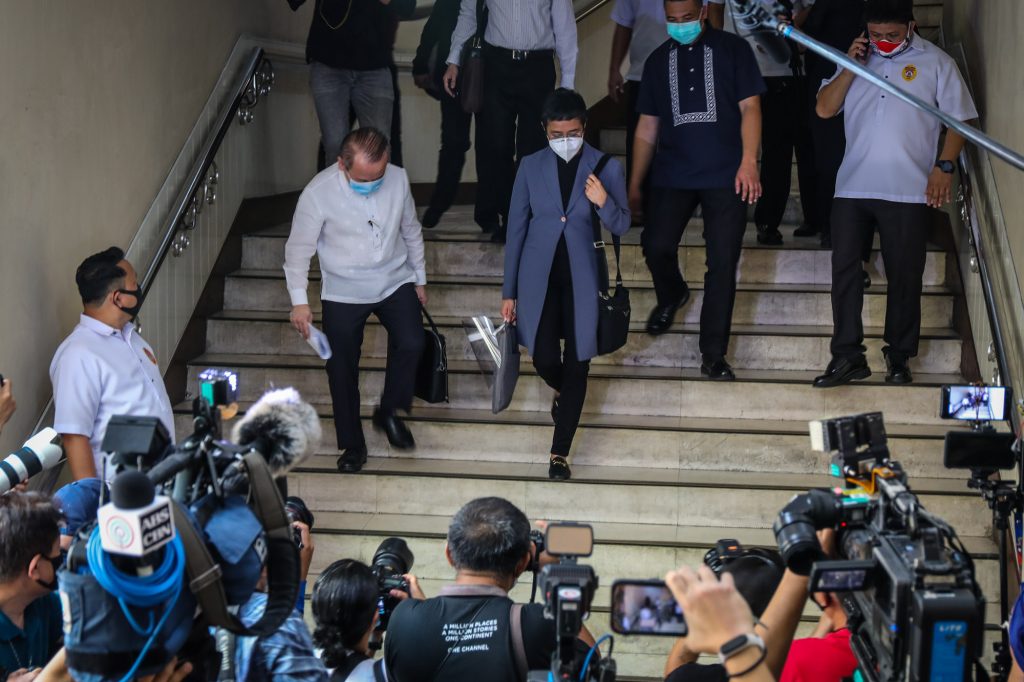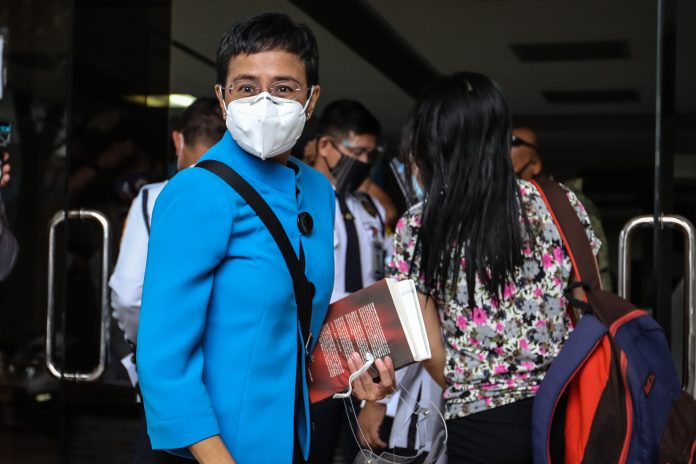Veteran Philippine journalist Maria Ressa, who accepts the Nobel Peace Prize in Oslo on December, has battled multiple legal cases and online abuse in her campaign for press freedom under President Rodrigo Duterte.
The former CNN correspondent co-founded investigative news site Rappler in 2012, bringing together multimedia reporting and social media to offer an edgy take on Philippine current events.
Ressa, 58, has been a vocal critic of Duterte and the deadly drug war he launched in 2016, triggering what media advocates say is a grinding series of criminal charges, probes and online attacks against her and Rappler.
She was named a Time Person of the Year in 2018 for her work on press freedom, but a series of arrests and one conviction for cyber libel further grew her international profile and drew more attention to her struggle.
Rappler has had to fight for survival as Duterte’s government accused it of violating a constitutional ban on foreign ownership in securing funding, as well as tax evasion.
It has also been accused of cyber libel — a new criminal law introduced in 2012, the same year Rappler was founded.
Duterte has attacked the website by name, calling it a “fake news outlet,” over a story about one of his closest aides.
Though the government has said that it has nothing to do with any of the cases against her, press freedom advocates disagree.
Yet through the campaign against her, Ressa, who is also a US citizen, has remained based in the Philippines and continued to speak out against Duterte’s government despite the risks.
Ressa is on bail pending an appeal against a conviction last year in a cyber libel case, for which she faces up to six years in prison.
It is one of seven cases she is fighting after two cyber libel suits were dismissed earlier this year.

Threats and abuse
Ressa’s position at the head of the Rappler news site meant getting, by her own estimate, up to 90 abusive messages per hour online at one point towards the end of 2016.
The threats came in the months after Duterte took power and launched his narcotics crackdown that rights groups estimate has killed tens of thousands of people.
Rappler was among the domestic and foreign media outlets that published shocking images of the killings and questioned its legal basis.
International Criminal Court judges have authorized a full-blown investigation into a possible crime against humanity during the bloody campaign.
It was an entirely new set of threats for Ressa, who was a veteran of conflict zones before co-founding Rappler.
As CNN’s former bureau chief in Manila and Jakarta, Ressa specialized in terrorism, where she tracked the links between global networks like Al-Qaeda and militants in Southeast Asia.
The Princeton graduate later returned to the Philippines to serve as news chief at the nation’s top broadcaster ABS-CBN, which has also fallen foul of the Duterte administration.
Ressa’s new book “How to stand up to a dictator” is due to be released ahead of the country’s 2022 presidential elections, which Duterte is not allowed to contest due to constitutional term limits, although he is planning to run for the Senate.
But the son and namesake of former dictator Ferdinand Marcos has a commanding lead among front runners for the top job.
After the Nobel Prize was announced in October, Ressa was defiant in her defense of her battle for freedom of expression and independent journalism.
“What we have to do as journalists is just hold the line,” she said.









